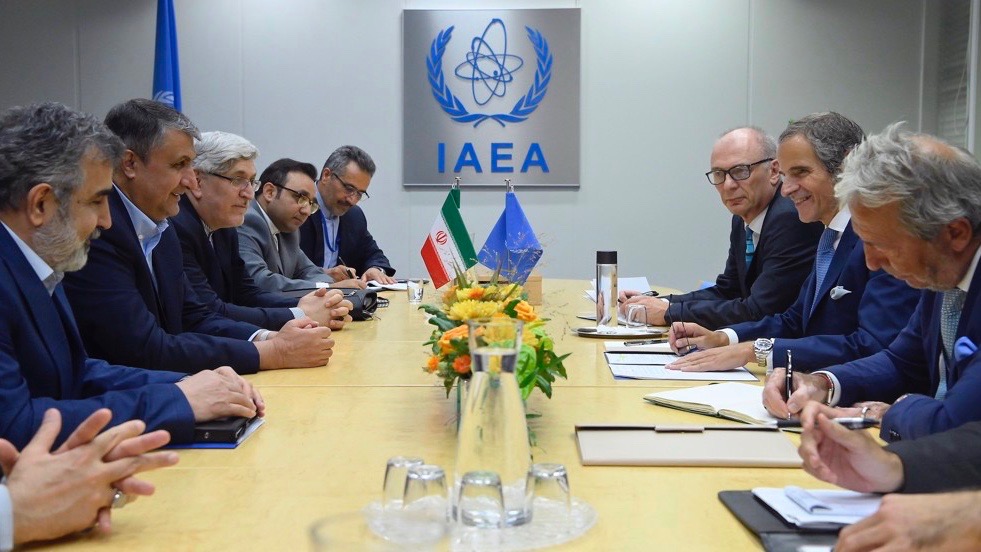In a major setback to the ongoing efforts to revive the Iran nuclear deal or the Joint Comprehensive Plan of Action (JCPOA), the US Treasury Department on Thursday, September 29, issued a fresh round of sanctions on Iran. The sanctions target various firms located in Iran, the UAE, Hong Kong, China, and India that are allegedly involved in trading Iranian petroleum and petrochemical products.
The US Treasury said in a press release on Thursday that its “office of foreign assets control (OFAC) sanctioned an international network of companies involved in the sale of hundreds of millions of dollars’ worth of Iranian petrochemicals and petroleum products to end users in South and East Asia.”
Claiming that the US wants to “severely restrict” the sale of Iranian oil and petrochemical products, Brian E Nelson, undersecretary of the Treasury Department, said that “so long as Iran refuses a mutual return to full implementation of the Joint Comprehensive Plan of Action, the United States will continue to enforce its sanctions on the sale of Iranian petroleum and petrochemical products.”
The sanctions are expected to increase the hardships of common Iranians as the move may affect the Iranian government’s efforts to revive the economy, given the fact that petroleum products are its main source of foreign income.
The US Treasury claims that sanctions are reversible at the resumption of the JCPOA. However, they only complicate the possibility of its revival as Iran seeks the withdrawal of all sanctions imposed since former US President Donald Trump unilaterally withdrew from the deal in May 2018 before its resumption.
Meanwhile, various European countries including Germany – one of the signatories of the JCPOA in 2015 – have also pushed for more sanctions in the wake of recent protests in Iran over the mandatory Hijab.
Iran has often emphasized that the US reluctance to lift the sanctions is the primary roadblock to reviving the deal. In a recent meeting with UN Secretary General António Guterres during his visit to the US for the UN General Assembly session, Iranian Foreign Minister Hossein Amir Abdollahian repeated this claim.
Foreign Minister @Amirabdolahian stated in the meeting, “There has been a lot of progress in the negotiations and we believe that an agreement can be reached if the American side is realistic.”
— Iran Foreign Ministry 🇮🇷 (@IRIMFA_EN) September 28, 2022
Efforts to revive the Iran nuclear deal were stalled earlier this month following the refusal by the US to address two key Iranian demands regarding the final draft of the renewed deal which was negotiated by China, Russia, and the remaining European signatories.
Iran has emphasized the need of guarantees from the US that it will not withdraw from the deal unilaterally without facing consequences. It has also demanded ending an ongoing investigation by the IAEA about undeclared nuclear materials supposedly found in the past by the agency in Iran.
Iran has alleged that the IAEA’s investigation into a matter almost 20 years old is politically motivated and that the agency is working under pressure from the US and Israel.
In a recent interview that Iranian Foreign Minister Abdollahian gave to the US National Public Radio, the text of which was published on Thursday on the Iranian Foreign Ministry website, he emphasized that for Iran, guarantees are central for restoring the JCPOA. He also questioned the seriousness of the Joe Biden administration in the US about restoring the deal, and emphasized the fact that despite talks with Iran, the US has continued to impose sanctions on an almost daily basis, Xinhua reported.





